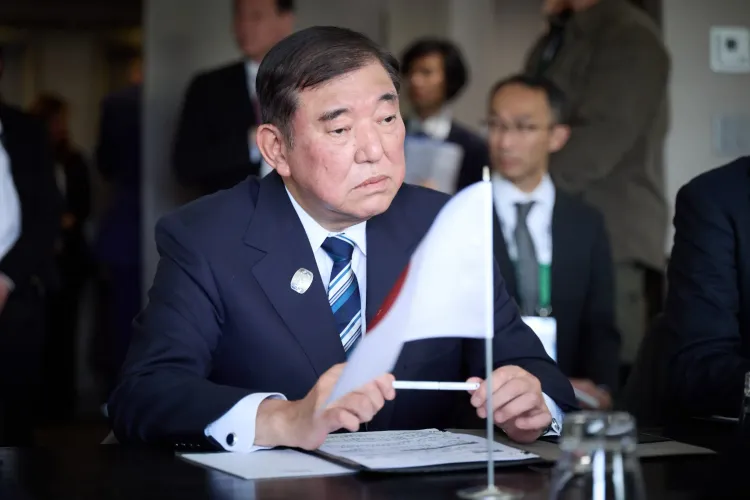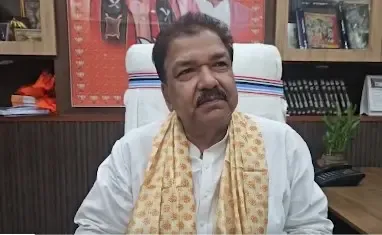Will Japanese PM Ishiba Remain in Office Amid Calls to Resign?

Synopsis
Key Takeaways
- Shigeru Ishiba remains determined to lead amidst calls for his resignation.
- The Liberal Democratic Party is considering an early presidential election.
- Joint plenary meetings are crucial for party decision-making.
- Internal dissent within the party persists.
- Trust in the LDP has been challenged by recent scandals.
Tokyo, Aug 8 (NationPress) In a firm rejection of calls for his resignation, Japanese Prime Minister Shigeru Ishiba reaffirmed his commitment to serve during a crucial meeting of the Liberal Democratic Party regarding recent electoral setbacks.
After the joint plenary session of LDP lawmakers from both parliamentary houses, party executives indicated that the election committee might contemplate an early presidential election, which is currently scheduled for 2027, as reported by Japan's prominent news agency Kyodo News.
Joint plenary meetings function similarly to party conventions, addressing significant issues, yet they lack the authority to dismiss the party leader. Under the LDP regulations, a leadership election can occur mid-term if it garners support from a majority of lawmakers and local chapter executives.
The process of securing backing from lawmakers and local chapters for a potential snap election is anticipated to commence in late August or later, following the LDP's review of its recent poor performance in the House of Councillors elections.
Despite the growing calls for his resignation as Japan's Prime Minister, Ishiba highlighted the necessity of meeting his “responsibility to the country,” noting the ongoing challenges despite a recent tariff agreement with the United States.
During the meeting, Ishiba expressed his desire to “listen sincerely and humbly” to the opinions of his colleagues. Post-meeting, he emphasized the importance of taking his fellow party members’ views seriously.
When questioned by reporters about the likelihood of an early party leadership election, Ishiba stated, “All I can say is that it will be handled properly in line with the party rules,” according to Kyodo News.
This meeting took place amidst persistent internal dissent, even as Ishiba remains resolute in his position following the ruling coalition's loss of majority in the upper house elections on July 20.
In the inaugural national polls after assuming leadership of the LDP and becoming Prime Minister in 2024, Ishiba witnessed the ruling coalition's loss of majority control in the House of Representatives. His cabinet's support has dwindled, with recent results indicating that the LDP has struggled to regain trust following scandals surrounding political funding.
Shigeru Ishiba has encountered calls for his resignation primarily from lawmakers aligned with the views of former Japanese Prime Minister Shinzo Abe, who was tragically assassinated during a campaign speech in 2022.









